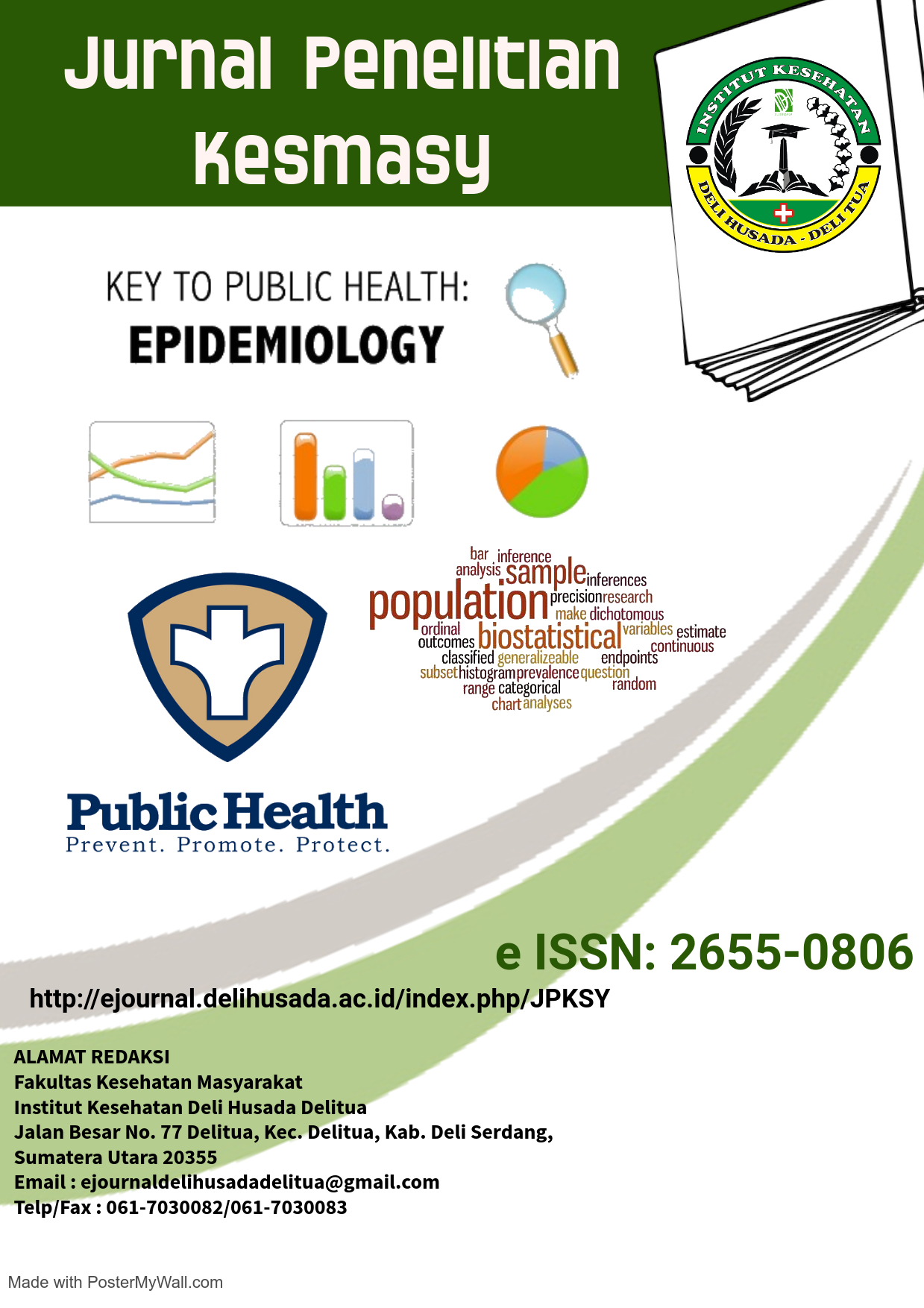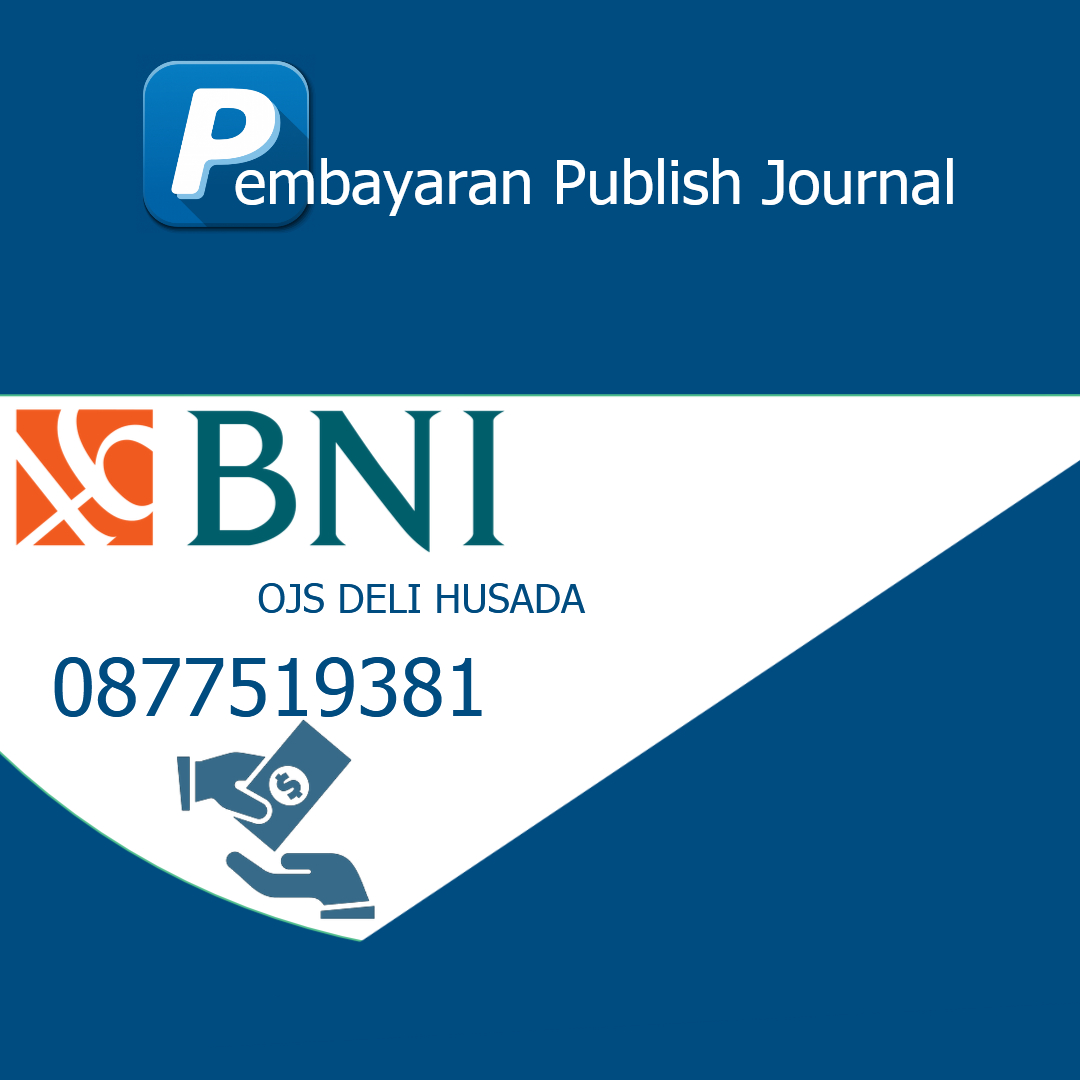HUBUNGAN SOSIAL EKONOMI DAN PERILAKU HIDUP BERSIH DAN SEHAT DENGAN KEJADIAN DIARE PADA BALITA DI DESA BARU KECAMATAN PANCUR BATU
Abstract
According to the World Health Organization (WHO) diarrhea is liquid bowel movements more than three times in 24 hours, and focuses more on the consistency of feces than the frequency of defecation. Diarrhea is still one of the main public health problems in Indonesia because of its high morbidity and mortality. This research method is a "cross sectional study" where data collection is only carried out in only one period or only done once in one study (Budiarto, 2004). The population is all mothers who have children under five who live in Baru Village, PancurBatu, Deli Serdang District, which is 480 people. The sampling technique is by random sampling method. The sampling technique uses a random sampling method using a formula so that the sample is 96 people. The research instruments used in this study are using questionnaires which are divided into two parts, namely the first to find out the characteristics of respondents and the relationships between variables and the most influential variables in the incidence of diarrhea. Bivariate analysis data found that there was a relationship between breastfeeding, income, healthy latrines, hand washing with the incidence of diarrhea where the value of p <0.005. and there is no significant relationship between education, employment and clean water use with the incidence of diarrhea p> 0.05. the community needs to understand about the incidence of diarrhea in infants and the factors that influence it so that they can make efforts to prevent the prevention of diarrhea independently by improving socio-economic behavior and clean and healthy living







